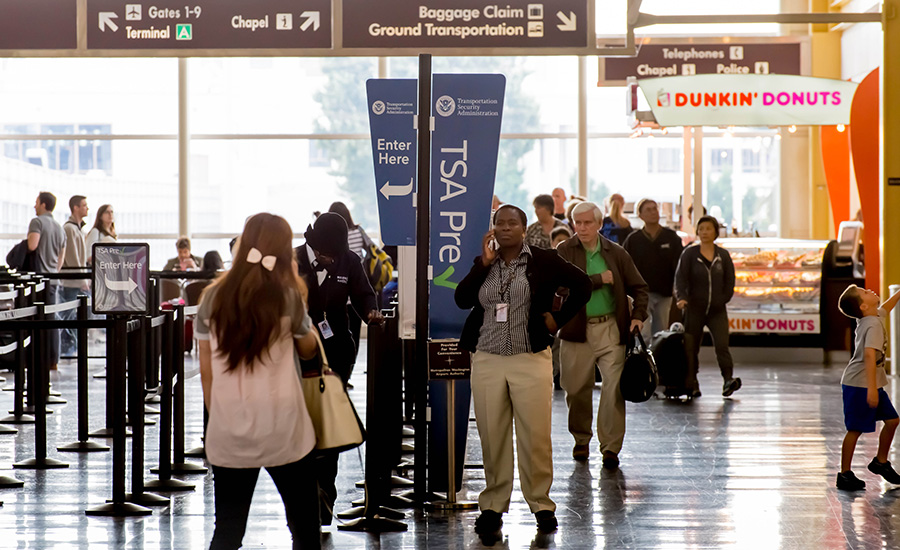Bill Introduced to Expand Enrollment in TSA PreCheck

U.S. Sens. John Thune (R-S.D.) and Gary Peters (D-Mich.) introduced the Secure Traveler Act, legislation that would expand enrollment in TSA PreCheck for individuals who have passed extensive background checks, like federal employees holding an active security clearance and law enforcement officers.
“My Secure Traveler Act would allow more people who are already serving in positions of public trust to more easily enroll in TSA PreCheck,” said Thune. “It would free up resources that could be used on other travelers and help cut down on long airport security lines, which are potentially vulnerable targets for those wishing to cause harm. This bill builds off of the progress of last year’s FAA reauthorization bill, an effort I led when I served as chairman of the Commerce Committee, and it will remain a priority for me. If we can move passengers through TSA checkpoints faster, in an effective and secure way, the travel experience will be better and less stressful, and with shorter lines, it will be safer, too.”
“TSA is responsible not only for ensuring our airports are safe but also operating efficiently for travelers in Michigan and across the country,” said Peters. “I’m pleased to partner with Senator Thune on this bipartisan bill, which would make the TSA PreCheck program more effective while prioritizing the security of travelers. By eliminating a duplicative background check for law enforcement officers and trusted officials like judges that already have security clearances, TSA personnel could instead focus on processing other applicants, enabling PreCheck to expedite enrollment and helping to shorten airport security lines.”
Under the Secure Traveler Act, persons in positions of public trust would not have to undergo a second background check when applying for PreCheck. This would not only expedite their application process and incentivize their participation in the programs, but it would free up capacity to screen other, non-eligible applicants. Applicants would still be subject to other program requirements, including paying all applicable fees, and participants would still pass through airport security, as detailed below. Active duty military are already enrolled in PreCheck, and DOD civilians are currently able to opt-in for the program.
Enrollment Via Clearance:
- The administrator of the TSA would, in consultation with the director of the National Background Investigations Bureau, create a process to verify an active security clearance for applicants in lieu of a background check.
Enrollment for Law Enforcement:
- The administrator of the TSA would, in consultation with the attorney general, establish a process to permit the expedited enrollment of certain law enforcement officers, including public safety and law enforcement officers.
Fees:
- Applicants would still be required to pay all associated fees upon enrollment. U.S. citizens and lawful permanent residents may apply for PreCheck at a cost of $85 for five years. Once approved, travelers would receive a “known traveler number” and would have the opportunity to utilize expedited lanes at select security checkpoints when flying. Travelers may also enroll in CBP’s Global Entry for $100 for five years, which includes enrollment in PreCheck.
Report:
- The administrator of the TSA and commissioner of U.S. Customs and Border Protection, in consultation with the attorney general, director of the National Background Investigations Bureau, and other appropriate departments, would report on the feasibility of expanding the PreCheck program created by this act to other trusted traveler programs, such as Global Entry.
Looking for a reprint of this article?
From high-res PDFs to custom plaques, order your copy today!






